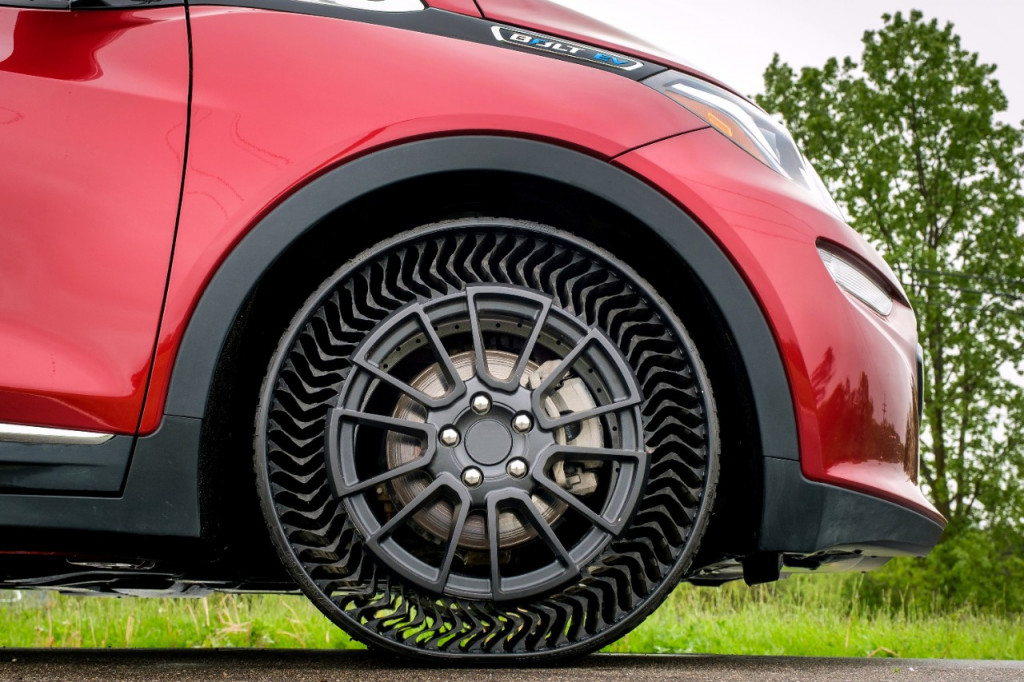In electric cars, it's not just the powertrain that is different. It's the tires.
Electric cars require special tires for a variety of reasons, tire manufacturer Continental said in a press release Friday.
Their tires must handle more weight compared to internal-combustion vehicles, and deliver more torque to the road when moving away from a stop, the company noted.
Because of their near-silent powertrains, tire noise is also more noticeable in electric cars than internal-combustion vehicles, where it is partially masked by engine noise.
When designing tires for electric cars, Continental gives them increased load-bearing capacity to account for the extra weight of a battery pack. The tread pattern and tread compound are also EV-specific, to handle the nearly-instant torque of electric motors. And to quiet tire noise, a foam inlay is added inside. Continental's tires for electric cars also generally have a "tall and narrow" shape to reduce rolling resistance, which helps increase range.

GM, Michelin Uptis airless tire prototype
Tires themselves can have a huge effect on EV range—and so can wheels. Multiple tests have shown that swapping out stock low rolling-resistance tires and aerodynamic wheels for aftermarket items can decrease range, although it can also improve handling.
The Volkswagen ID.3 hatchback will have model-specific tires made by Bridgestone. They not only have lower rolling resistance than conventional tires, but are 20% lighter, and were designed with the ID.3's more even weight distribution in mind, according to Bridgestone.
Toyota has in the past considered airless tires for electric cars, while General Motors said last year that it could offer Michelin airless tires on an upcoming EV in 2024.
And looking to the future, if we want a truly zero-emission vehicle, we'll need to start carefully considering the emissions from tire and brake dust.












